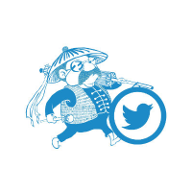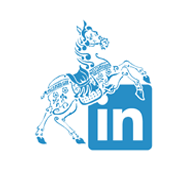









22 July 2018 by Roy Preece
The Chinese have banned Peppa Pig as a bad example to young people. But they are promoting Genghis Khan as a national hero! Strange or not?
We hear that the Chinese authorities have banned Peppa Pig as being a role model for young people. It seems this pig does not have a sufficiently respectful attitude to authority. On the other hand, having tried to banish much of the past in the cultural revolution of the 1960s, the government is now seeking to reinstate great thinkers such as Confucius. But Genghis Khan?
Genghis Khan certainly had a serious attitude to authority. His Mongol Empire has been reckoned to have slaughtered about 5 per cent of the population of the world at that time! Most notorious was the massacre at the city of Merv, then the largest city in the world, under one of Genghis Khan’s sons, where it is said that as many as 700,000 inhabitants were executed. Destruction of crops and irrigation systems led to widespread starvation. The population of Persia was reduced to one tenth of its former size; from 2,500,000 to just 250,000.
Merv was a great cultural centre and a hundred years before had been the home of the famous twelfth century Persian poet and mathematician Omar Khayam who expressed a fatalistic attitude to life and to the account of history in these well-known lines:
The Moving Finger writes; and, having writ,
Moves on: nor all your Piety nor Wit.
Shall lure it back to cancel half a Line,
Nor all your Tears wash out a Word of it.
Genghis’ empire was huge. It stretched across the whole width of Asia and lapped against eastern Europe. But his best-known conquest was of course a divided China itself, a long, treacherous and cruel war which included the complete destruction in 1215 of what is now Beijing and was then the capital of the Jin dynasty of northern China. The fate of Beijing, known as Yanjing, was almost as tragic as that of Merv. Genghis set up a sort of caste system to rule China and he put the Han Chinese at the lowest level.
Today, however, along with Confucius, Genghis Khan’s reputation is being rehabilitated, and not only in China, but by some western academics and media too. His conquests led to the re-unification of China and the setting up of the Yuan Dynasty under his son Kublai Khan. China was in effect now the base of a huge empire, although the Mongol Empire is not usually thought of as being a Chinese Empire. In some ways Mongol rule was socially enlightened. Paper money was introduced and the Chinese currency is still the yuan or yuen today. This is the culture which so impressed the Venetian explorer Marco Polo, though much of it was existing Chinese culture, and was later romanticised by Samuel Taylor Coleridge’s poem:
In Xanadu did Kubla Khan
A stately pleasure dome decree:
Where Alph, the sacred river, ran
Through caverns measureless to man
Down to a sunless sea.
So twice five miles of fertile ground
With walls and towers were girdled round:
And there were gardens bright with sinuous rills,
Where blossomed many an incense-bearing tree;
And here were forests ancient as the hills,
Enfolding sunny spots of greenery.
Although he was belittled by Chairman Mao Tse-Tung, the Chinese built a mausoleum and museum in Inner Mongolia in 1954 to celebrate the life of Genghis Khan. Communist authorities say he embodies the essence of new China – an example of unifying force for a land of many ethnic groups. "We define him as a great man of the Chinese people, a hero of the Mongolian nationality, and a giant in world history," says Guo Wurong, the manager of the mausoleum (news resources).
We can understand why the Chinese government may see Genghiz Khan as a great hero who established unity and stability, and though the wise Omar argued that the past cannot be changed, it can perhaps be forgotten.